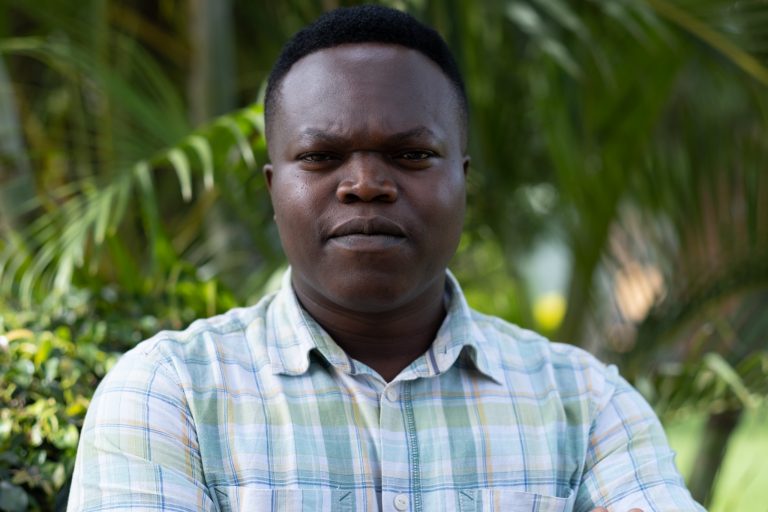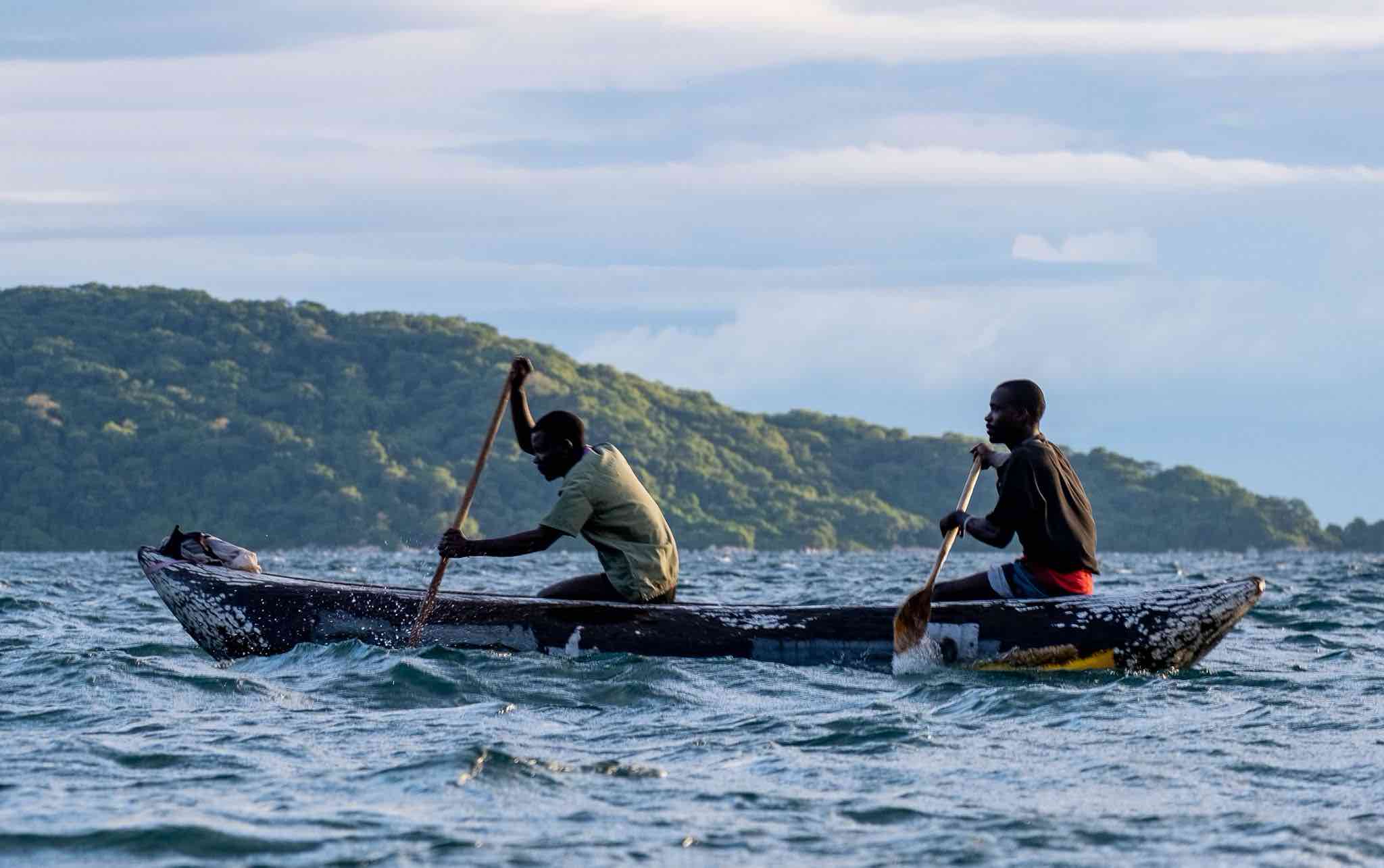Second of a two-part series on IFPRI Malawi’s Bunda Grant Scheme (BGS) mentorship program. Funded by USAID, the program offers selected master’s students from the Department of Agricultural and Applied Economics at the Lilongwe University of Agriculture and Natural Resources (LUANAR) technical support on their thesis research and a forum to present and receive practical feedback on their research. Read the first post here.
Christopher Chikowi
Christopher Chikowi, from the 2019/2020 cohort, is 27 and from Ulongwe, Balaka district, the eldest of four children. After obtaining a Bachelor of Science degree in Agricultural Economics from LUANAR in 2015, he decided to pursue a Master of Science degree in Agricultural and Applied Economics. Christopher applied to the BGS program after hearing about it from previous LUANAR scholars, who highlighted the significance of the financial and technical support offered by IFPRI to develop a proposal, working paper, and manuscript. He was one of nine students seeking entry into the BGS program. Four students were selected and two published their papers in IFPRI Malawi’s working paper series.
His proposal to assess consumer choice and demand for tilapia in urban Malawi drew the interest of IFPRI Malawi Research Fellow Dennis Ochieng, an agricultural economist with research interests in global agri-food systems transformation and its implications for developing countries. “Fishery and aquaculture value chains contribute significantly to employment, economic growth and food and nutrition security in Malawi. This mentorship gave me the opportunity to explore the pathways to develop the value chains,” said Dennis.

Dennis Ochieng
Christopher was happy to have a mentor from outside LUANAR to provide insights on how a research institute functions. “At the university, I focused more on the analytical part of my work—if the analysis is right then that’s it. However, at IFPRI, I was guided to go beyond analytical rigor to contextualize the study findings and generate relevant policy messages,” he said.
“Fishery and aquaculture value chains contribute significantly to employment, economic growth, and food and nutrition security in Malawi and the mentorship gave me the opportunity to explore pathways to develop the value chains.”
A successful mentorship requires dedication and commitment from both sides. As Dennis and Christopher both lived in Lilongwe, they were able to meet several times in person to develop the research. They also communicated regularly via email, telephone and text message. At-times conflicting advice from his LUANAR supervisors and IFPRI mentor was a challenge and working to achieve consensus was one of the highlights. Both mentor and mentee liked to discuss and debate. “I had several intellectual debates with my mentor on how to shape the paper. I am someone who does not just say yes to things, and so was my mentor. We had to argue on the points we raised until we reached an agreement. This improved my confidence and expanded my view, so I was happy with this process,” Christopher said.
Little by little, their working paper took shape. It was published on the IFPRI Malawi website in December 2019 and Christopher presented the results at a well-attended IFPRI Malawi research seminar in Lilongwe in March 2020. This gave him an opportunity to hone his presentation skills and receive feedback from attendees of diverse backgrounds to strengthen the paper further.
“We had to argue on the points we raised and reached an agreement. This improved my confidence and expanded my view, so I was happy with this process.”
Christopher’s study analyzed consumer choices and demand in urban Malawi for two species of tilapia, Lake Malawi Oreochromis spp. (Ny) and Oreochromis shiranus (Os), in unprocessed and processed form. He used data collected from a sample of 584 urban households in Malawi’s two major cities, Blantyre and Lilongwe. Even though most consumers chose farmed tilapia (Os) over the wild tilapia (Ny), the results of the study indicate trade-offs in choice but complementarities in demand for unprocessed and processed tilapia products. The study found that the drivers of consumer choice were not the same as the drivers of demand for tilapia. This is attributed to diverse consumer characteristics, market conditions, and tilapia traits. Also, the study found that tilapia attributes such as nutritive value and ease of cooking significantly influence urban consumers’ choice and demand.
“This was one of the best moments because it gave me confidence that I can really do it.”
Following publication of the working paper, Dennis, Christopher, and his LUANAR supervisor, Prof. Charles Jumbe, then invested a lot of time to shape the paper into a manuscript for publication in Aquaculture, an A-ranked journal. Meanwhile, various deadlines approached. “I had to complete a thesis to graduate, work to find money to survive and prepare a manuscript to submit to the journal,” said Christopher. “I was really stressed because it was hard to strike a balance so that everything should work. And because of this, the process took longer than it was supposed to.”
When the manuscript was finally accepted for publication, “this was one of the best moments because it gave me confidence that I can really do it,” Christopher said. The paper is now published online.
Dennis found the mentorship program a positive experience and enjoyed helping to shape Christopher’s thesis. He stresses the importance of the larger effort. “The Bunda Grant Scheme fulfills part of IFPRI Malawi’s mandate to support local institutions and contribute to capacity building in Malawi,” said Dennis.
The official mentor-mentee relationship ended after the journal publication. “I would like to continue the relationship and work with Dennis on a different study, whenever I have a solid and important research idea,” said Christopher. While his graduation has been postponed due to COVID-19, he has been working as a project coordinator in a livelihood project for the Catholic Development Commission in Malawi (CADECOM) in Mchinji district since January 2020.
Interviews for this blog series were conducted by IFPRI-Malawi’s Sandra Fröbe-Kaltenbach, Communications Specialist, and Cynthia Kazembe, Research and Communications Assistant. This post also appears on the IFPRI-Malawi blog.







